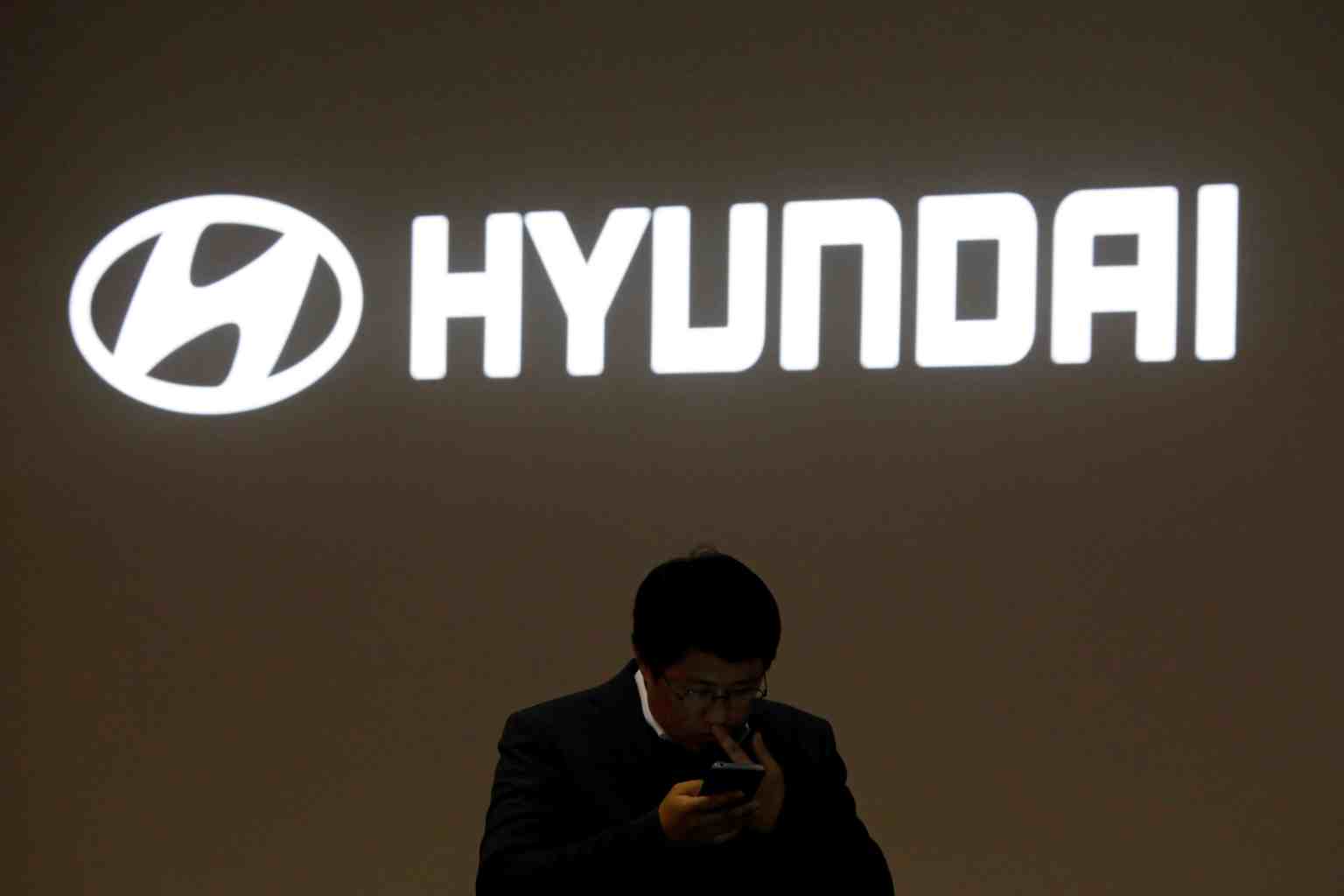Market turmoil helps rich Korean families cement their succession plans
Sign up now: Get ST's newsletters delivered to your inbox

Euisun Chung, the son and heir-apparent of Hyundai Motor Group Chairman Chung Mong-koo, acquired a 0.3 per cent stake in the group's flagship unit for 40.6 billion won.
PHOTO: REUTERS
Follow topic:
SEOUL (BLOOMBERG) - Plunging markets have resulted in big losses for the world's wealthiest, but rich families in South Korea have found a silver lining.
In a country where succession planning can be costly because of high inheritance tax rates, members of some family-run conglomerates are taking advantage of lower stock prices to snap up shares and increase their ownership stakes.
"The current situation can be a good opportunity for them," said Park Ju-gun, president of corporate governance research firm CEOScore in Seoul. "They can spend less for greater control."
Euisun Chung, the son and heir-apparent of Hyundai Motor Group Chairman Chung Mong-koo, paid 41.1 billion won (S$48.4 million) this week for a 0.32 per cent stake in holding company Hyundai Mobis Co, according to filings. He previously didn't own shares in the company, whose stock has dropped 34 per cent this year.
He also acquired a 0.3 per cent stake in the group's flagship unit, Hyundai Motor Co, for 40.6 billion won, filings show. The purchase increased Chung's stake to 2.6 per cent and came just days after he was named chairman of the automaker's board. Hyundai Motor's shares have declined 28 per cent this year.
The move "could potentially help him in terms of the group's ongoing ownership restructuring," Kim Joon-sung, an analyst at Seoul-based Meritz Securities, said in March 24 report. "The acquisition of shares in Hyundai Mobis, considered as a key element in securing control over Hyundai Motor, could benefit Chung no matter when and how the reorganization proceeds."
The stock purchases demonstrated Chung's "responsibility as a CEO amid growing uncertainty in global stocks and financial markets," a Hyundai spokesperson said in an email, adding that other company executives have also bought shares.
South Korea isn't the only place where the coronavirus pandemic may make it easier for very wealthy families to pass fortunes to the next generation. Low interest rates and falling stock prices are helping rich Americans avoid US estate and gift taxes by lending assets to their children and setting them up to benefit from any recovery.
Family members of other Korean conglomerates also have been buying shares in their companies. Chung Yoo-kyung, whose mother is chairman of retail giant Shinsegae Group, added 50,000 shares in department store operator Shinsegae Inc for 13.7 billion won, raising her stake to 10.3 per cent, according to company filings. The firm's stock is down 22 per cent this year.
At Hyundai Motor, the country's second-largest chaebol after Samsung, it's critical for Chung, 49, to secure control over his father's shares. The elder Chung owns stakes in Hyundai Motor and Hyundai Mobis of 5.3 per cent and 7.1 per cent, respectively, allowing him to control the conglomerate through a web of cross shareholdings. His holdings in the group's listed units, worth $2.2 billion, are subject to inheritance tax of as much as 60 per cent.
Tightening the family's grip is more important than ever after Hyundai canceled its US$8.8 billion overhaul plan - aimed at paving the way for the father-son succession - in response to pressure from billionaire Paul Singer's Elliott Management Corp.
While market fluctuations usually boost demand for safer assets such as cash, it's a different case for rich families, said Park Sangin, a professor at Seoul National University's Graduate School of Public Administration.
"It's not just about making profits as ordinary investors would want," Park said. "They are buying the shares because it helps them with more control and smooth succession."

